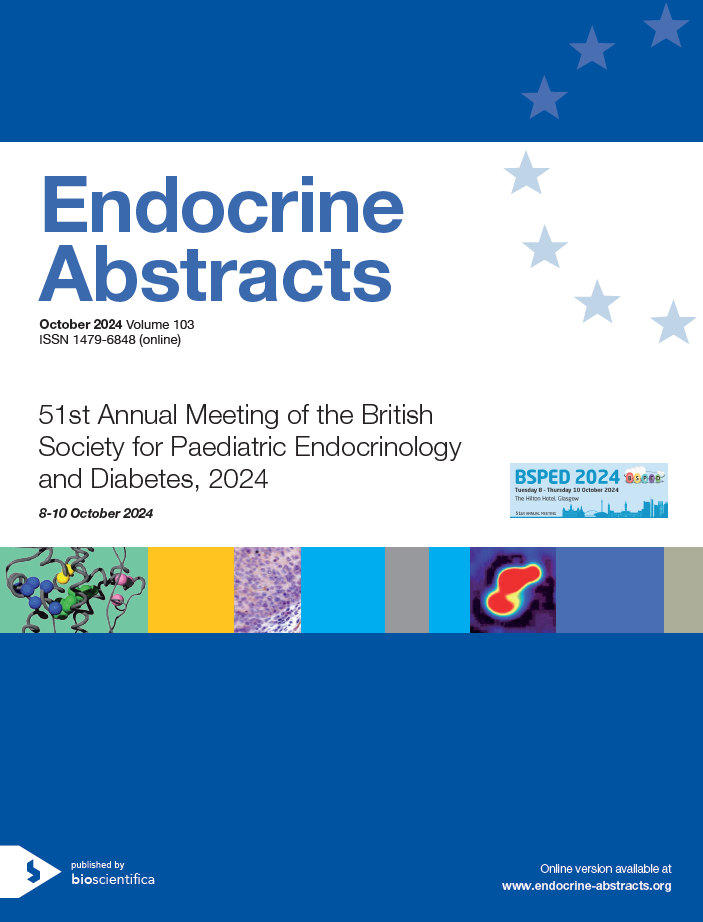
51st Annual Meeting of the British Society for Paediatric Endocrinology and Diabetes
Glasgow,
UK
08 Oct 2024 - 10 Oct 2024

Poster Presentations
Diabetes 4
ea0103p83 | Diabetes 4 | BSPED2024
Audit of management of diabetic ketoacidosis in children and young people at the noah’s ark children’s hospital for wales
Frame Alicia , Stuttaford Laura , Shetty Ambika
ea0103p84 | Diabetes 4 | BSPED2024
Aniridia and glucose intolerance associated with PAX6 mutation; MODY, T1D or both?
Blackstock Sarah , Ghosh Sudeshna , Bound Christopher , Misra Shivani , Wassouf Samir , Logan Karen
ea0103p85 | Diabetes 4 | BSPED2024
A clinical audit exploring the relationship between HbA1c control and appointment adherence among young adult diabetes clinic patients
Sahoo Sthitapragyan , Chen Mimi
ea0103p86 | Diabetes 4 | BSPED2024
High rate of initial presentation in severe DKA: is obesity a risk factor for presentation in severe DKA in young people
Balagamage Chamila , Andrews Afiya , Dias Renuka P. , Krone Ruth
ea0103p87 | Diabetes 4 | BSPED2024
Insulin oedema in paediatrics diabetes: a case report and clinical reflection
Elsharkasi Huda , Whyte Karen , Singh Harcharan , Pearce Hilary
ea0103p88 | Diabetes 4 | BSPED2024
Initial results of effectiveness of a hybrid closed loop system via omnipod 5 and dexcom g6 system on glycaemic control
ea0103p89 | Diabetes 4 | BSPED2024
Using existing data to support the CYP diabetes healthcare community to fully understand their patient population and tackle health inequalities in line with NHSE CORE20PLUS5
Maiden Jonathan , Foster Jenny , Savage Emma
ea0103p90 | Diabetes 4 | BSPED2024
Does real time continuous glucose monitoring improve glycaemic control in patients with Wolfram syndrome and insulin dependent diabetes mellitus?
Elliott Josephine , Gleeson Susan , Williams Denise , Barrett Tim , Dias Renuka



